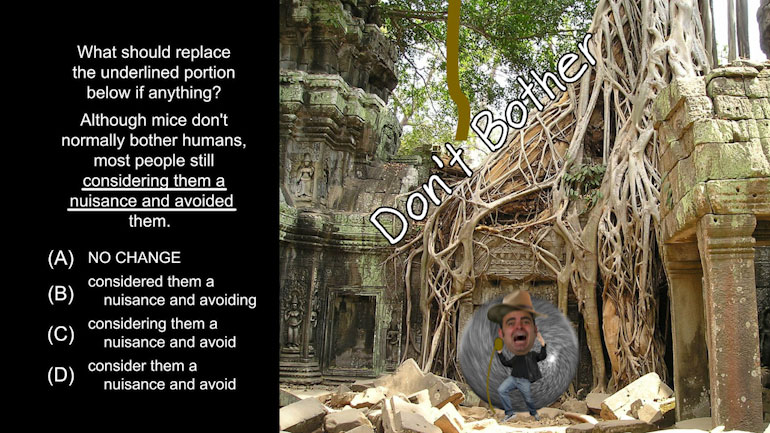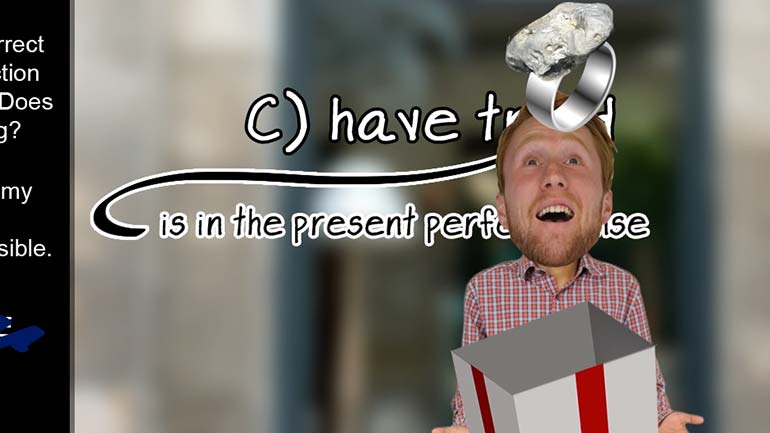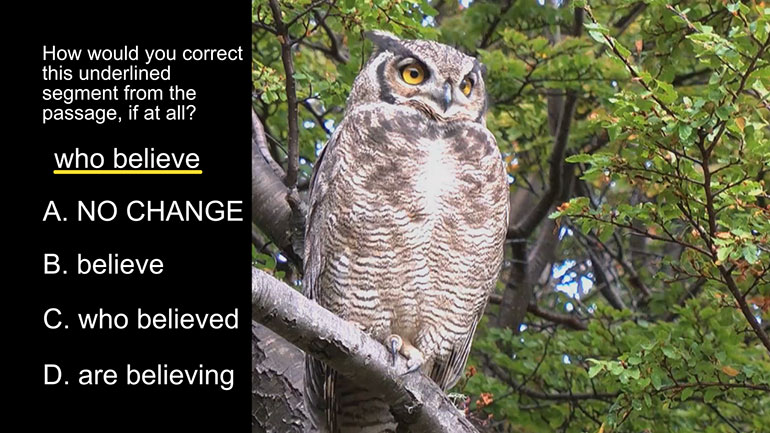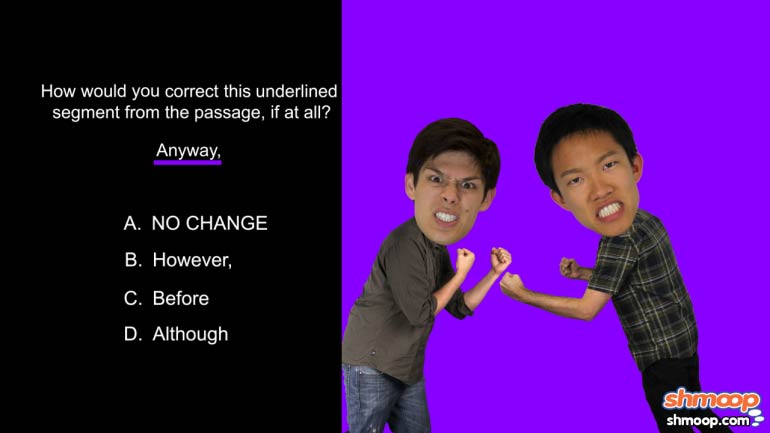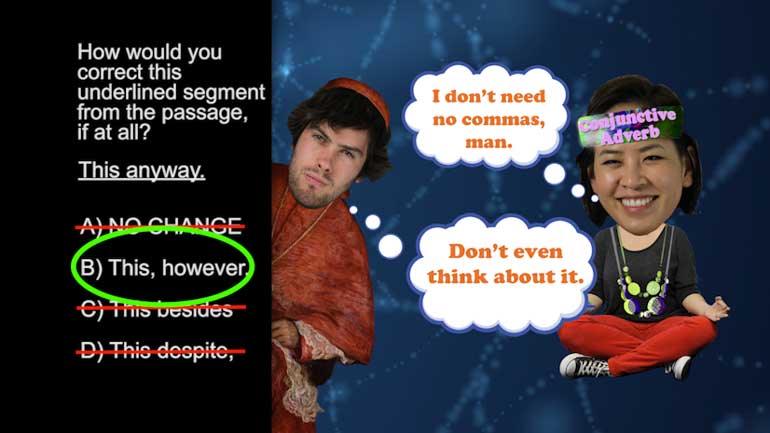ShmoopTube
Where Monty Python meets your 10th grade teacher.
Search Thousands of Shmoop Videos
Consistency and Tense Videos 10 videos
ACT English: Sentence Structure Drill 5, Problem 1. Which choice uses the correct tense?
In this ACT English drill question, figure out if the underlined section requires a correction or not.
In this ACT English drill question, figure out if the underlined segment requires a correction or not.
ACT English 4.2 Passage Drill 192 Views
Share It!
Description:
ACT English 4.2 Passage Drill. How would you correct the underlined portion, if at all?
Transcript
- 00:03
Here’s your Shmoop du jour, brought to you by San Francisco.
- 00:07
So it was delivered by a smiling streetcar driver along with a box of Rice a Roni.
- 00:28
How would you correct this underlined segment from the passage, if at all?
- 00:32
who believe?
- 00:33
And here are the potential answers...
Full Transcript
- 00:38
It’s funny how one little word can throw an entire sentence askew.
- 00:42
In this case, the word “who” is a real troublemaker.
- 00:45
See, “who” is what’s known as a relative pronoun.
- 00:50
Like normal pronouns, a relative pronoun’s job is to stand in for nouns in a sentence.
- 00:55
However, relative pronouns have the addeduty of introducing relative clauses, which
- 00:59
modify words, phrases, or ideas.
- 01:02
So in the sentence in question the relative pronoun “who” signals a clause that describes
- 01:07
the subject (aka “most people nowadays”).
- 01:10
The trouble is that by establishing a relative clause the word “who” is stealing the
- 01:15
verb from the subject of the sentence.
- 01:18
Like full sentences, relative clauses need a subject and verb to exist.
- 01:22
If “who” is allowed to have its way, the word “believe” would have to be its verb.
- 01:28
Unfortunately, this derails everything because the original sentence is trying to use “believe”
- 01:32
as its verb as well. By stealing the verb from the subject of the sentence,
- 01:36
“who” makes the entire sentence incomplete.
- 01:39
Looks like we’d better nix any option with “who” in it before this relative pronoun
- 01:43
can case any more trouble. Choices (A) and (C) are out of the running.
- 01:47
Now that we’ve got “who” out of our hair, we can turn our attention to choices (B) and (D).
- 01:52
The difference here is that (B) uses the simple present tense with “believe,”
- 01:56
and (D) uses the present progressive with “are believing.”
- 02:00
Given the two, we’re going with choice (B).
- 02:02
The simple present tense works better in this context because the writer is talking about
- 02:06
a general belief that people have.
- 02:08
The present progressive makes it sound like tons of people are obsessing about the issue
- 02:12
of the origin of fortune cookies at this very moment.
- 02:15
Which we hope isn’t true--for the good of the country as a whole.
Related Videos
ACT English: Punctuation Drill 2, Problem 2. Where should the semi-colon be placed?
ACT English: Punctuation Drill 3, Problem 1. How should this sentence be changed so that it is grammatically correct?
ACT English: Punctuation Drill 3, Problem 2. How should we properly hyphenate the words in this sentence?
ACT English: Punctuation Drill 3, Problem 4. Which choice best formats this list of items?
ACT English: Punctuation Drill 2, Problem 1. Which choice of punctuation best completes the sentence?



